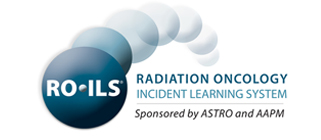Quality and Safety
ASTRO supports high quality by leading initiatives that enhance quality and safety, and developing resources that ultimately improve patient outcomes and the lives of people with cancer.
Quality Improvement Announcements
- Patient safety: In recognition of the International Day of Medical Physics and National Radiologic Technology Week, RO-ILS released two new educational documents to celebrate a medical physicist and radiation therapist great catch.
- Radiopharmaceutical Therapy
- APEx:
- ASTROblog on the RPT-specific designation
- New RPT-specific designation

Accreditation
APEx, the fastest growing radiation oncology accreditation program in the United States, recognizes facilities by objectively assessing adherence to rigorous quality and safety standards to improve patient care and outcomes.
RO-ILS
RO-ILS is a safety program that offers enrolled practices a ready-made portal to collect and analyze errors in a legally protected environment. Education based on the aggregate database facilitates quality improvement.
Data standards
Establishing robust radiation oncology data standards for seamless interoperability, enabling comprehensive data exchange, enhancing treatment quality, and fostering collaborative research, ultimately advancing patient care and outcomes.
Safety is No Accident
This comprehensive reference guide was updated in 2019 to reflect the many recent efforts undertaken by radiation oncology specialty societies to improve quality and safety.
Measures
Measures are a mechanism to assess quality indicators in various aspects of the delivery of health care and may be used internally or externally with a direct link to physician reimbursement.
Radiation Disaster Management
Radiation oncologists have a civic duty to become principal resources in emergency preparedness measures in the event of a nuclear/radiologic incident or disaster.


